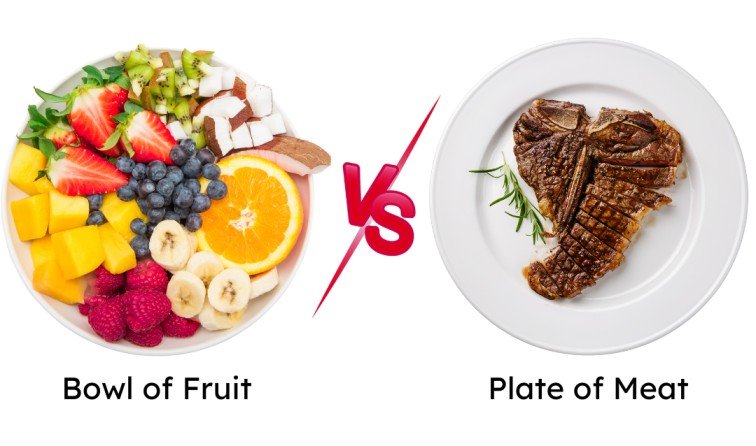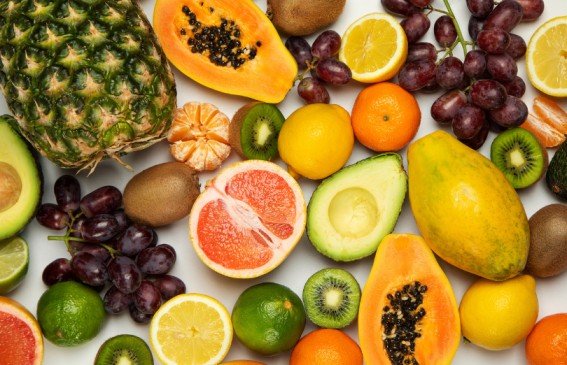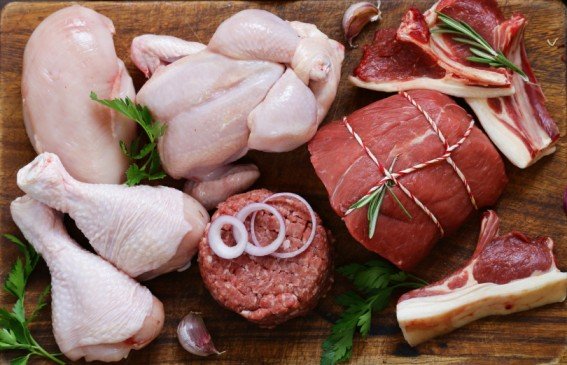
The Nutritional Edge: Comparing a Bowl of Fruit to a Plate of Meat for Various Sports
Athletes require a well-balanced diet to support their training, performance, and recovery. While both fruits and meat are essential components of a sports nutrition plan, they offer distinct nutritional profiles that cater to different needs. This blog aims to explore the scientific reasons behind choosing a bowl of fruit over a plate of meat for various sports, drawing on valid research papers to provide an informed perspective.
The Power of Fruit:

Fruit is a nutritional powerhouse, packed with vitamins, minerals, antioxidants, and fiber. For athletes, incorporating fruit into their diet offers several advantages:
- Quick Energy Source: Fruits contain natural sugars like fructose and glucose, providing a rapid energy boost, crucial for high-intensity sports like sprinting or interval training.
- Hydration: Many fruits, such as watermelon and oranges, have high water content, aiding in hydration during intense workouts or competitions, thus maintaining optimal performance levels.
- Antioxidant Support: The antioxidants found abundantly in fruits help combat oxidative stress induced by strenuous exercise, reducing inflammation and supporting faster recovery post-workout.
- Gut Health: Fiber-rich fruits promote gut health by supporting the growth of beneficial gut bacteria, aiding digestion, and enhancing nutrient absorption, which is vital for overall health and performance.
- Immune Boost: Fruits like berries, citrus fruits, and kiwi are rich in vitamin C, bolstering the immune system and reducing the risk of infections, thus keeping athletes in top shape.
The Strength of Meat:

Meat, on the other hand, is prized for its protein content and essential nutrients crucial for muscle repair, growth, and overall athletic performance:
- High-Quality Protein: Meat, particularly lean cuts like chicken breast or turkey, provides high-quality protein containing all essential amino acids necessary for muscle protein synthesis, aiding in muscle repair and growth post-exercise.
- Iron and Zinc: Red meat, such as beef or lamb, is an excellent source of iron and zinc, essential minerals for oxygen transport, energy production, and immune function, crucial for endurance athletes.
- B Vitamins: Meat is rich in B vitamins, including B12, B6, and niacin, which play key roles in energy metabolism, nerve function, and red blood cell production, supporting optimal athletic performance.
- Satiety: The protein and fat content in meat helps promote satiety and stabilize blood sugar levels, providing a sustained source of energy during prolonged sporting events or endurance activities.
- Muscle Recovery: The amino acids present in meat, particularly leucine, promote muscle recovery and adaptation to training, aiding in muscle strength and endurance development over time.
Comparing Fruits and Meat for Various Sports
- Endurance Sports: For endurance sports like long-distance running, cycling, or swimming, carbohydrates from fruits play a crucial role in providing immediate energy. Fruits’ high water content and antioxidant properties also support hydration and recovery from oxidative stress.
- Strength and Power Sports: In strength and power sports like weightlifting, sprinting, or basketball, the protein from meat contributes to muscle growth and repair. However, combining meat with plant-based sources of protein and carbohydrates can provide a more balanced and sustainable energy source.
- Team Sports: For team sports like soccer, football, or hockey, a combination of fruits and meat can cater to the diverse nutritional needs of athletes. Fruits offer quick energy and antioxidants, while meat provides essential amino acids and minerals for muscle function and recovery.
- Combat Sports: In combat sports like boxing, martial arts, or wrestling, where both strength and endurance are crucial, a balanced intake of fruits and meat can support the athlete’s needs. Fruits offer quick energy and antioxidants, while meat contributes to muscle growth and repair.
Conclusion:
Both fruit and meat offer unique nutritional benefits that can enhance sports performance across various disciplines. Ultimately, the choice between a bowl of fruit and a plate of meat depends on individual athlete preferences, dietary needs, and the specific demands of their sport. A balanced approach that incorporates a variety of nutrient-dense foods, including fruits and lean meats, is key to optimizing athletic performance and achieving peak results.
Click on the explore button below for personalized nutrition plans.
